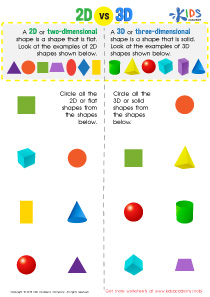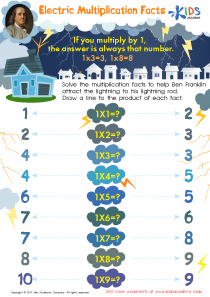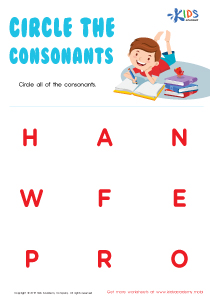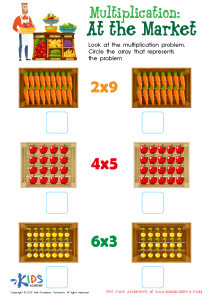Logic and Early Math Quizzes for Ages 3-4
39 results
39 filtered results
Clear all filters39 filtered results
-
From - To
Introducing our Interactive Assessment Quizzes, meticulously designed for Ages 3-4, focusing on the foundational realms of Logic and Early Math. Engaging, colorful, and crafted with young learners in mind, our quizzes offer an enjoyable way for children to explore essential concepts such as basic numeracy, shapes, patterns, and logical reasoning. Each quiz provides immediate feedback, encouraging kids to understand and learn from their answers, ensuring a robust and interactive learning experience. Perfect for early learners, our quizzes are an excellent tool for parents and educators aiming to foster a love for Logic and Early Math in a fun, interactive environment.
In the world of childhood education, the foundational years are critical. It's during this period that children begin to develop the basic skills that will support their lifelong learning journey. Among these foundational skills, logic and early math stand out for their importance in cognitive development and future academic success. Recognizing this, our interactive quizzes on Logic and Early Math for Ages 3-4 have been meticulously designed to cater to the burgeoning minds of young learners.
Logic, the art of reasoning, is crucial in the development of problem-solving skills. It helps children understand the world around them through observation, identification of patterns, and the making of predictions based on their observations. Early math, on the other hand, introduces children to numbers, shapes, and basic arithmetic principles, setting the stage for more advanced mathematical concepts. Together, these disciplines form a bedrock upon which children can build a robust intellectual framework.
Our interactive quizzes are much more than just assessments. They are, in essence, a fun-filled learning experience tailored to the curiosity and capabilities of children aged 3-4. By engaging with our quizzes, children embark on a journey of discovery, where each question is designed to challenge their minds gently and encourage critical thinking and reasoning.
One of the key features of our quizzes is their interactive nature. Children learn best when they are actively involved in the process, and our quizzes are built to ensure maximum engagement. Through colorful animations, friendly characters, and intuitive gameplay, we’ve created an environment where learning feels like play. This not only helps in holding the attention of young learners but also in fostering an early love for learning.
Moreover, our quizzes on Logic and Early Math for Ages 3-4 are structured to adapt to the individual learning pace of each child. They offer instant feedback, allowing children to understand their mistakes and learn from them immediately. This feedback loop is crucial in building confidence and a positive attitude towards learning and problem-solving.
The benefits of starting early with logic and math cannot be overstated. By introducing these subjects in an age-appropriate and engaging manner, we lay a solid foundation for future academic achievements. Our quizzes help in developing a child’s numerical and logical thinking from a young age, which is essential for navigating not only future math subjects but also life’s daily challenges.
In an educational landscape that’s increasingly recognizing the need for a holistic approach to learning, our interactive quizzes stand out as a resource that supports both cognitive development and the development of soft skills such as perseverance, attention to detail, and the ability to follow instructions.
In conclusion, our interactive quizzes on Logic and Early Math for Ages 3-4 are more than just an educational tool—they are a stepping stone towards building confident, curious, and cognitively strong learners. By engaging young minds in a playful yet purposeful manner, we not only prepare them for the academic road ahead but also instill in them a lifelong love for learning.











